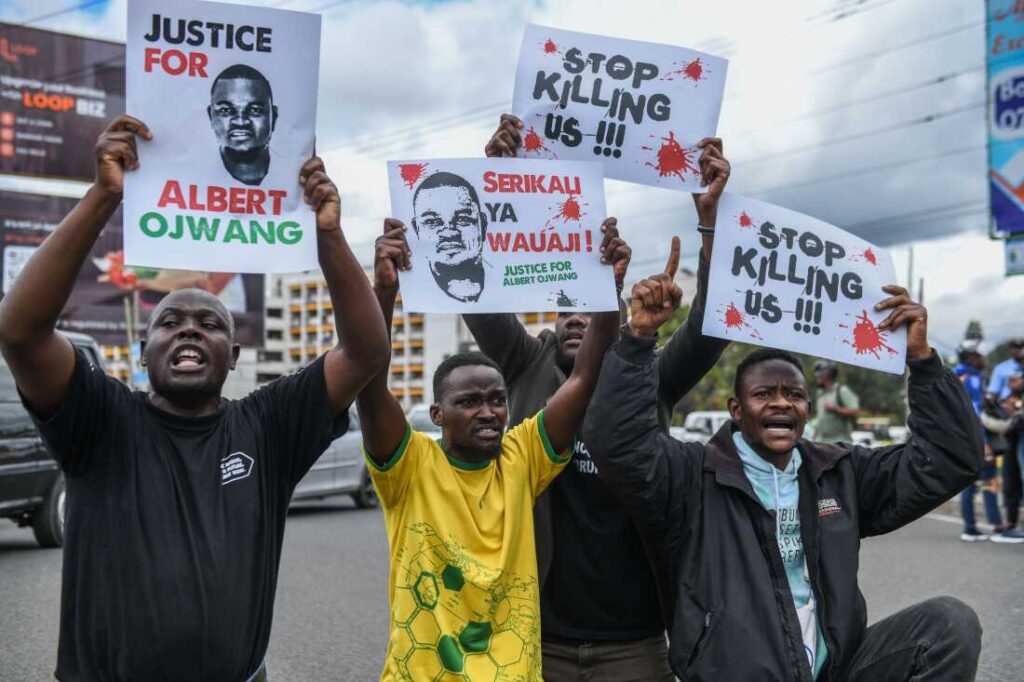The tragic death of Kenyan blogger Albert Ojwang while in police custody has ignited nationwide outrage, sparking protests and renewed calls to end police brutality in the country.
When police officers arrived to arrest 31-year-old Ojwang, his wife, Nevnine Onyango, believed he would be safe. Unlike the many political activists abducted by unknown agents over the past year, Ojwang was taken openly to a local police station. Officers even shared their phone numbers with the family, a gesture that gave Onyango some reassurance.
“They weren’t violent. They were calm,” Onyango recalled. “That gave me confidence he was in safe hands.”
But by the next morning, the unthinkable happened. A family member called to say Ojwang, her husband and father of their three-year-old son, had died in custody.
Ojwang’s death has now become a flashpoint, especially among young Kenyans still reeling from last year’s deadly protests, where more than 60 people were killed while demonstrating against tax increases and police violence.
This week, hundreds of demonstrators poured into the streets of Nairobi, torching vehicles and clashing with police, who fired teargas in response. Protesters pointed to Ojwang’s death as further proof that justice and accountability remain elusive.
Ojwang had been arrested in Homa Bay, western Kenya, following a formal complaint from Deputy Inspector General of Police, Eliud Lagat. According to Kenya’s Independent Policing Oversight Authority (IPOA), Lagat claimed he was targeted by false and malicious content shared on social media platform X (formerly Twitter).
Initially, police officials suggested Ojwang’s death was a suicide. However, an autopsy revealed signs of physical assault, including a head injury, neck compression, and soft tissue damage—ruling out suicide as the cause of death.
Following public backlash, President William Ruto addressed the incident, stating that Ojwang “died at the hands of the police”—calling the case both “heartbreaking” and “unacceptable.”
Three individuals have been arrested so far: the officer in charge of Nairobi’s Central Police Station (where Ojwang died), a police constable, and a CCTV technician. The national police service distanced itself from the incident, claiming it was the work of “a couple of individuals” not reflective of the force as a whole.
While it remains unclear exactly what Ojwang posted online to draw the attention of authorities, IPOA confirmed that the case stemmed from a probe into another blogger, whose interrogation led officers to Ojwang.
On the day of his arrest, officers arrived at his home on motorbikes, accusing him of insulting their “boss” and calling him corrupt—though they didn’t name the individual.
Ojwang was initially held at a local police station before being transferred nearly 300 kilometers to Nairobi. His last communication was a phone call to Onyango from the capital’s Central Police Station around 9 p.m. that Saturday. She said he sounded anxious and asked if she could travel to Nairobi.
Now, Onyango is seeking answers and justice from the IPOA’s investigation.
“We only see these things happen on TV,” she said. “Now it’s at my doorstep. These officers are meant to protect us, not harm us.”

